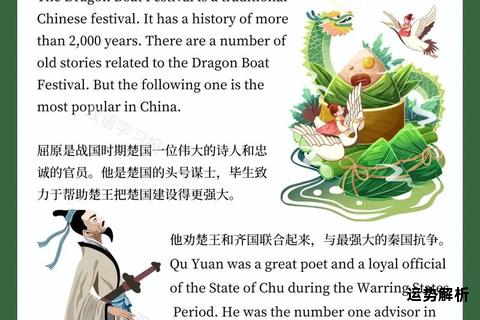The Cultural Significance and Linguistic Nuances of the Fifth Day of the Fifth Lunar Month

Understanding the Lunar Calendar and Its Global Relevance
The lunar calendar remains a cornerstone of cultural traditions across East Asia, with festivals like the Dragon Boat Festival (端午节) celebrated on the fifth day of the fifth lunar month. Translating such culturally rich events into English requires more than literal conversion—it demands an understanding of historical context, symbolism, and linguistic adaptability. For instance, while "Dragon Boat Festival" is widely accepted, terms like Duanwu Jie (端午节) or Double Fifth Festival are also used, each carrying distinct connotations. This multiplicity of names reflects the festival’s layered identity in global contexts. Educators and translators must prioritize clarity without stripping away cultural essence, ensuring that terms resonate both linguistically and historically.
Historical Roots: From Ancient Rituals to Modern Celebrations
The origins of the fifth lunar month’s significance date back over 2,000 years. One prevailing legend associates the festival with Qu Yuan, a patriotic poet of the Chu Kingdom who drowned himself in protest against corruption. Villagers raced boats to retrieve his body and threw rice dumplings (zongzi) into the river to deter fish from consuming him. Translating these narratives involves balancing specificity with accessibility. For example, zongzi might be described as "glutinous rice wrapped in bamboo leaves" initially, followed by the term’s phonetic spelling. Historical accounts in English should emphasize universal themes—loyalty, community, and resilience—while detailing unique practices like herbal sachets (xiangbao) or mugwort hanging, which symbolize warding off evil spirits.
Linguistic Challenges in Translating Customs and Symbolism
Cultural untranslatability is a recurring issue. Terms like xiong huang jiu (雄黄酒), a realgar wine consumed during the festival, lack direct equivalents. Descriptions must bridge this gap: "a traditional alcoholic drink infused with mineral powder, believed to repel pests and diseases." Similarly, the dragon boat races—central to the festival—are often simplified in English, losing nuances like drumming rhythms that synchronize rowers. To address this, multimedia resources (videos, infographics) paired with textual explanations can enhance comprehension. Educators should encourage bilingual glossaries that preserve original terms while offering contextual definitions, fostering deeper cross-cultural appreciation.
The Festival in Global Contexts: Adaptation vs. Preservation
As diaspora communities introduce the Dragon Boat Festival worldwide, its expression evolves. Cities like Vancouver and Sydney host dragon boat races, blending sport with cultural education. However, commercialized events risk diluting symbolic meanings. For instance, marketing zongzi as "Chinese tamales" simplifies their historical significance. Recommendations include:
1. Educational Integration: Schools should incorporate folklore and hands-on activities (e.g., crafting paper boats).
2. Community Collaboration: Partnering with cultural organizations to ensure authenticity in public events.
3. Digital Storytelling: Using platforms like YouTube to share documentaries on Qu Yuan’s legacy.
Strategies for Effective Cross-Cultural Communication
To bridge understanding gaps, consider these approaches:
Conclusion: Preserving Heritage Through Language
The fifth day of the fifth lunar month embodies a cultural tapestry interwoven with history, myth, and communal values. Translating its essence into English is not merely linguistic—it is an act of cultural preservation. By prioritizing accuracy, context, and engagement, we ensure that future generations, regardless of language, grasp the profound legacy of this festival. As globalization continues, such efforts will define how traditional festivals thrive in an interconnected world.


